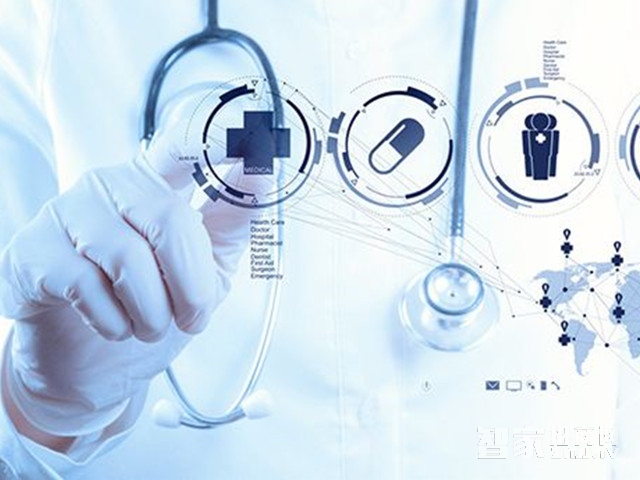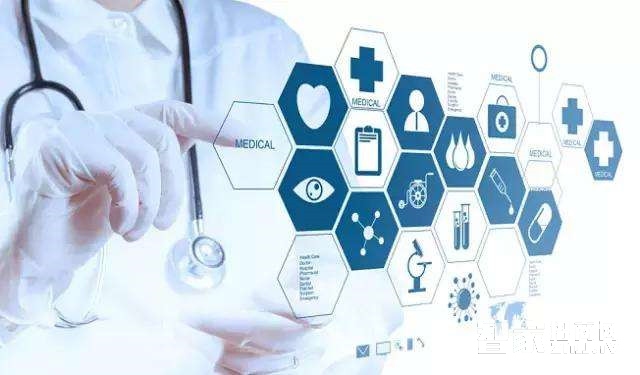Smart Healthcare is a health information regional medical information platform that uses the most advanced Internet of Things technology to achieve interaction between patients and medical personnel, medical institutions, and medical devices, and gradually achieves informatization. In the near future, the medical industry will integrate more high-tech artificial intelligence, sensing technology and other high technologies, so that medical services will become truly intelligent and promote the prosperity and development of medical services. Under the background of the new medical reform in China, smart medical care is moving into the lives of ordinary people. With the prolongation of life expectancy, the decrease of birth rate and people's concern for health, people in modern society need a better medical system. In this way, telemedicine and e-health are extremely urgent. With the help of IoT/cloud computing technology, artificial intelligence expert systems, and intelligent devices of embedded systems, a perfect IoT healthcare system can be constructed so that all citizens can enjoy top-level medical services on an equal footing and solve or reduce the lack of medical resources. It has led to difficulties in seeing a doctor, straining doctor-patient relationships, and frequent accidents. As early as 2004, the Internet of Things technology was used in the medical industry. At that time, the US Food and Drug Administration (FDA) took a lot of practical actions to promote the implementation and promotion of RFID. The relevant government agencies passed legislation that regulates the transportation and sale of RFID technology to drugs. , anti-counterfeiting, tracking system applications. U.S. hospitals use RFID-based neonatal management systems that use RFID tags and readers to ensure the safety of newborns and pediatric patients. At the end of 2008, IBM put forward the concept of "smart medical care" and envisaged applying the Internet of Things technology to the medical field to realize the interconnection of medical information, sharing and collaboration, clinical innovation, diagnostic science, and public health prevention. The development of smart medicine is divided into seven levels: First, the business management system, including hospital charges and drug management systems; second, the electronic medical record system, including patient information, image information; and third, the clinical application system, including the computer doctor's order entry system ( CPOE), etc.; Fourth, Chronic Disease Management System; Fifth, Regional Medical Information Exchange System; Six, Clinical Support Decision System; Seven, Public Health System. In general, China is in the stage of development from the first and second stages to the third stage. CPOE has not been established in the true sense. The main reason is the lack of effective data, the inconsistent data standards, and the lack of clinical background of suppliers. There is also a lack of standard guidelines for the transition of standards to practical applications. If China wants to move from the second phase to the fifth phase, it involves the formation of many industry standards and data exchange standards. This is also the aspect that needs to be improved in the future. In terms of remote intelligent medical care, domestic development is relatively fast, and relatively advanced hospitals have actually come to the fore in the application of mobile information technology. For example, real-time recording, transmission, and processing of medical record information, patient information, and disease information can be realized, enabling the sharing of related information in real time and efficiently between hospitals and hospitals. This is to realize telemedicine and experts. Consultation, hospital referral, etc. can play a very good supportive role, which is mainly due to the promotion of policy level and technical level support. However, the current lack of long-term mode of operation, the lack of large-scale, clustered industrial development, in addition to the high cost, security and privacy issues, which is also stimulating the future of smart medicine. The Internet of Things technology is used in the medical field. Through digitization and visualization, limited medical resources can be shared by more people. From the perspective of the current development of medical informatization, with the trend of medical community-based and health-oriented development becoming more apparent, real-time tracking and monitoring of physical sign information in the home through radio frequency instruments and other related terminal equipment, through effective Internet of Things, It can realize real-time diagnosis and health reminding for patients or sub-healthy patients in hospitals, so as to effectively reduce and control the occurrence and development of patients. In addition, the application of IoT technology in drug management and drug application will also play a significant role. With the development of mobile Internet, the future of medical care will develop in the direction of personalization and mobilization. By 2015, more than 50% of mobile phone users will use mobile medical applications, such as smart capsules, smart wristbands, and smart health detection products, which will be widely used. Smart handheld terminals and sensors effectively measure and transmit health data. In the next few years, China's smart medical market will exceed 10 billion yuan in size, and the surrounding industries will involve a wide range of equipment and products. The real start of this market will not only be limited to the medical service industry itself, but will also directly touch the interest chain including network suppliers, system integrators, wireless equipment suppliers, and telecom operators, thus affecting the communications industry. There is layout. With the further improvement and improvement of safety precaution systems and technologies, the medical industry is fully qualified and capable of applying the latest high-tech achievements, leading the industry to a new level, providing the most advanced and timely medical services, and establishing itself The industry image and can effectively serve users. In order to promote the hospital's specific requirements for modernization and efficient management, it is now proposed to combine the current level of industry development, using advanced technologies, and adopting a safe and reliable network monitoring solution. Integrating the monitoring system into an “integrated, networked†environment is in line with the development needs of hospital security work. of. Article: Can the emergence of smart medical care change the annoyance of "people"? Recommended: Home Theater Join Agent Sea Smart Smart Home Products Vcsel Module,Vcsel Distance Sensor,Vcsel Laser,Single Mode Laser Module AcePhotonics Co.,Ltd. , https://www.acephotonics.com
Smart medical development

Smart Medical Development in the Future
related suggestion: